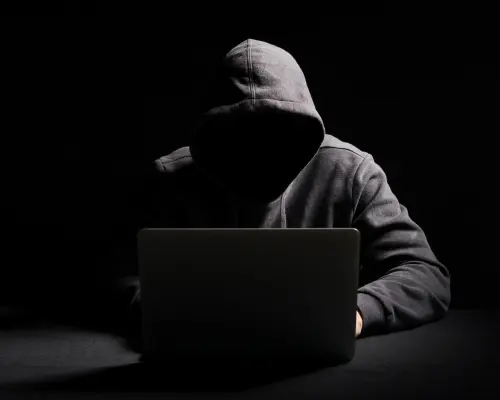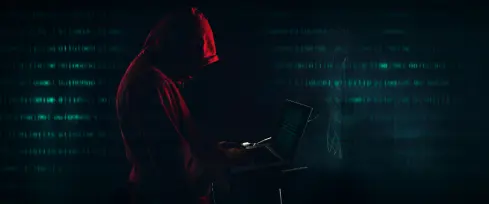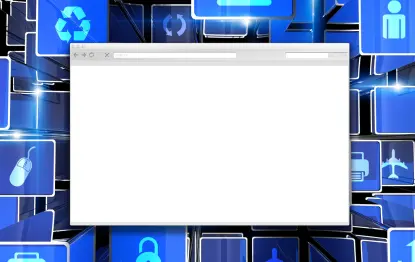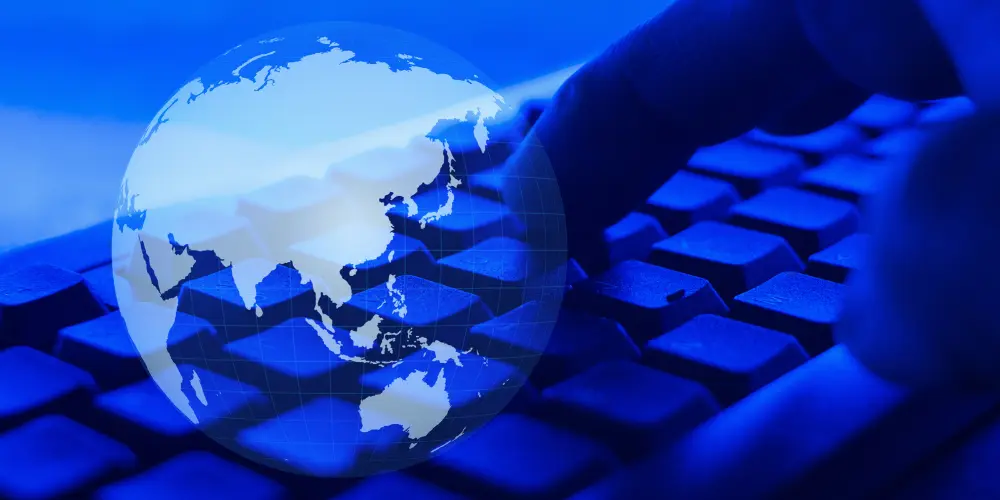The internet is an integral part of our lives, and we rely on it for communication, information, and entertainment. However, not all of the internet is accessible through a simple Google search. The Dark Web, a hidden corner of the internet, is shrouded in mystery and controversy. The Dark Web is a term that is often used to describe a network of websites and online communities that are hidden from the public eye and require specific software or configurations to access.
It’s important to understand what the Dark Web is, how it works, and the risks associated with using it. In this article, we’ll take a closer look at the Dark Web. We’ll also delve into the risks and benefits of accessing this mysterious corner of the internet and discuss how to stay safe while exploring it.
What Is The Dark Web?

The Dark Web is a section of the internet that is inaccessible via regular search engines and necessitates the use of special software or setups in order to access.
It is a section of the deep web that is purposefully hidden and requires special software to access, such as the Tor network. Tor is free and open-source software that allows anonymous communication by routing internet traffic across a network of servers, making it difficult to track the user’s location or activities.
The Dark Web is frequently linked to illegal operations like drug trafficking, weapon sales, and human trafficking. However, not all Dark Web content is illegal.
It is also utilized for legal applications, including as safe communication for journalists, whistleblowers, and activists in nations where free expression is banned. According to ExpressVPN’s dark web research on the dark web, you can buy credit card data, crypto, email, social media, streaming account login details, identification documents, and much more personal data.
Read also – What Is The Best Free Site To Search For a Person?
What Can You Access on the Dark Web?

The Dark Web is infamous for its association with illegal activities, such as drug trafficking, weapons sales, and human trafficking. However, not all content on the Dark Web is illegal. Some of the most common activities that take place on the Dark Web include:
- Many online marketplaces where illegal goods and services are bought and sold can be found on the Dark Web. Drugs, guns, counterfeit items, stolen data, and hacked accounts are all available in these markets.
- The Dark Web is also home to several forums and message boards where users may connect anonymously with one another. Politics and religion, as well as hacking and cybersecurity, are all covered in these forums.
- The Dark Web is often used by whistleblowers to share sensitive material anonymously. Whistleblowers can submit material anonymously using platforms like SecureDrop and GlobaLeaks.
- The Dark Web is a popular destination for cryptocurrency users, with several Bitcoin exchanges and services functioning there. Users can use these services to acquire and trade bitcoins without disclosing their identity.
Difference Between the Dark Web and Deep Web

The terms “Deep Web” and “Dark Web” are often used interchangeably, but they refer to different aspects of the internet. The Deep Web refers to any content that is not indexed by search engines and cannot be accessed through traditional means. This includes databases, private networks, and other types of content that are hidden from the public.
In contrast, the term “Dark Web” refers to a certain area of the internet that has been purposefully made secret and can only be accessed through specialist software, such as Tor or I2P.
Get Paid For Your Opinion With Online Surveys - Start Earning
This covert network is frequently utilized for criminal operations including the selling of illicit products and services, the trafficking of illegal persons, and the distribution of illegal drugs.
The Deep Web is not always malevolent or unlawful, which is one of its main distinctions from the Dark Web. In actuality, a sizable amount of the Deep Web is made up of private networks, scholarly databases, and research that needs login information to access.
Although these kinds of content are not intended for general consumption, neither are they necessarily harmful nor prohibited.
The Dark Web, in contrast, is purposefully kept secret from the general public and is frequently linked to unlawful activity. For instance, it is frequently employed for the selling of illegal substances, weapons, and stolen personal data. Additionally, it serves as a hub for a number of illegal activities, including child pornography, hitman services, and hacking forums.
Medical records, official papers, academic publications, and financial data are a few examples of deep web content. These kinds of content are not necessarily illegal, but because they are stored on private networks or require special access credentials, the general public cannot access them.
Risks of Using the Dark Web
The dark web is often associated with illegal activities, and there are significant risks associated with using it. These risks can be categorized into three main areas: legal and ethical concerns, cybersecurity risks, and personal safety risks.
A. Legal and Ethical Concerns
Utilizing the dark web carries a number of risks, not the least of which is the fact that many of the transactions made there are illegal or unethical. The dark web is a sanctuary for illicit activity including drug trafficking, human trafficking, the selling of illegal firearms, and hacking services due to the anonymity it provides. Online markets where stolen data and personal information are traded and exploited for fraud and identity theft may also be found on the dark web.
Users who access the dark web, even for legitimate purposes, run the risk of getting caught up in illegal activities. Law enforcement agencies worldwide actively monitor the dark web and have the capability to track down and prosecute those involved in criminal activities. Even if a user is not directly involved in illegal activities, their presence on the dark web can be perceived as suspicious and lead to legal trouble.
B. Cybersecurity Risks
Malware, viruses, and other dangerous software are well known for flourishing on the dark web. Users who access the dark web run the risk of downloading malicious software that could damage their computers or steal personal data. Cybercriminals may buy and sell hacking tools and services on the dark web, which makes it simpler for them to carry out attacks on unwary victims.
One of the most significant cybersecurity risks associated with the dark web is the possibility of being targeted by hackers. Hackers can use a variety of methods, such as phishing, to trick users into revealing sensitive information. The dark web is also home to forums where cybercriminals discuss their tactics and share information, making it easier for them to launch targeted attacks
C. Personal Safety Risks
The dark web is a place where users can purchase illegal goods and services, including drugs, weapons, and even hitmen for hire. Because the dark web is anonymous, there is no way to know who you are dealing with, and there have been cases where users have been scammed or threatened.
Moreover, users may also unwittingly expose their personal information while accessing the dark web. The dark web is a hub for data breaches, and users may not even realize that their personal information has been compromised until it’s too late.
Additionally, the anonymity of the dark web can make it a breeding ground for cyberbullying, harassment, and hate speech. Users who access the dark web run the risk of encountering malicious actors who may engage in these types of activities.
Browsers To Access Dark Web

Accessing the dark web requires specific software and browser configurations that allow users to browse anonymously and access hidden websites. Here are some of the most commonly used browsers to access the dark web:
- Tor: The Tor browser is the most popular browser for accessing the dark web. It is a free, open-source browser that encrypts all user traffic and distributes it throughout a decentralized network of volunteer-run servers, making it nearly hard to track.
- I2P: I2P is a different anonymous network that enables users to surf the dark web secretly. It is a decentralized network that protects user data using a range of encryption methods.
- Freenet: Freenet is a decentralized, peer-to-peer network that enables users to share files and browse websites anonymously. Journalists and activists that need to communicate securely frequently use it for file sharing.
- ZeroNet: ZeroNet is a decentralized network that enables users to host websites and have anonymous access to them. The BitTorrent network and Bitcoin cryptography are used to provide a safe and private surfing environment.
- Whonix: Whonix is an operating system intended to operate on a virtual computer; it is not a browser. It adds an extra degree of protection by separating the user’s online actions from the host computer and was created especially for use with the Tor network.
Is Using The Dark Web Illegal?
However, many of the activities that take place on the dark web are illegal. The dark web is a sanctuary for criminal activity like drug trafficking, human trafficking, the selling of illegal firearms, and hacking services due to the anonymity it provides. Online markets where stolen data and personal information are traded and exploited for fraud and identity theft can also be found on the dark web.
While using the dark web itself is not illegal, accessing or engaging in illegal activities on the dark web is a criminal offense.
Law enforcement agencies worldwide actively monitor the dark web and have the capability to track down and prosecute those involved in criminal activities. Even if a user is not directly involved in illegal activities, their presence on the dark web can be perceived as suspicious and lead to legal trouble.

